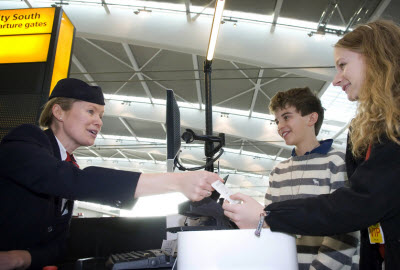Airports And Airlines Can Do Better Than Apologise
- Written by Roberto Castiglioni
 A recent string of accidents involving disabled passengers reminds that airports and airlines should stop using apologies as a mean to defer improvements.
A recent string of accidents involving disabled passengers reminds that airports and airlines should stop using apologies as a mean to defer improvements.
In everyday life we do things that will cause inconvenience to others, like bumping into other people in crowded venues. When this happens, most of us apologise. But how many times we feel genuinely sorry, and make every effort to avoid repeating the same mistake?
In the real world an apology usually proves to be a meaningless exercise, a mere act of politeness that will not affect future behaviours.
I recently came across a number of accidents involving passengers with disabilities. In the majority of cases, accidents were triggered by botched procedures, poorly implemented processes, lack of training. In all cases, the airport authority or airline directly responsible for the accident apologised. However, in all but one case, no change to process, procedure, or training was introduced after the incident.
Using apologies as a free "get out of jail" card is not only unacceptable; it is a missed opportunity to improve customer service and elevate future customer experience. In other words, airports and airlines should not hesitate taking a proactive approach when coming across lessons to be learned.
Many people with special needs already have a difficult life. It’s basic human decency not to make it any harder than  necessary. I am not advocating for airports or airlines to become safe havens for the disabled. This would be unreasonable and unrealistic. However, the air travel industry can and must do better to ensure access to air travel for all.
necessary. I am not advocating for airports or airlines to become safe havens for the disabled. This would be unreasonable and unrealistic. However, the air travel industry can and must do better to ensure access to air travel for all.
Greater focus on improving training protocols alone is not the correct response either. It is pointless to have staff perfectly trained where procedures are not there to guide their actions.
Most importantly, there must be measurable performance indicators in place to ensure real time monitoring of assistance services, even more so where airports or airlines delegate these services to hired contractors. Operators must bear in mind that devolving assistance services to contractors does not transfer the legal liability over to the contracted party, a common misconception across Europe.
Airports and airlines must not view disability as a matter or compliance, rather as an opportunity to promote services that will affect and improve the passenger experience of much wider groups like the elderly or families with young children. However, compliance should also be kept into consideration, as systemic failures are bound to lead to legal proceedings, fines, ultimately brand damage.
Delivering quality assistance in a cost efficient manner is possible; I have seen it happening with my own eyes at selected airports across the world. It is the crucial difference that separates leaders from followers, excellence from mediocrity.
A pondered and constructive approach to each incident is key to provide closure, improve customer service, and help implement change in a cost efficient way. How do I know this? I have spent years helping airports and airlines analyse accident reports, understanding underlying mistakes, making sure lessons are learned and processes and procedures are updated accordingly.
Our world is far from perfect but we certainly have the power to make every lesson learned matter, hence every new day a better one.










